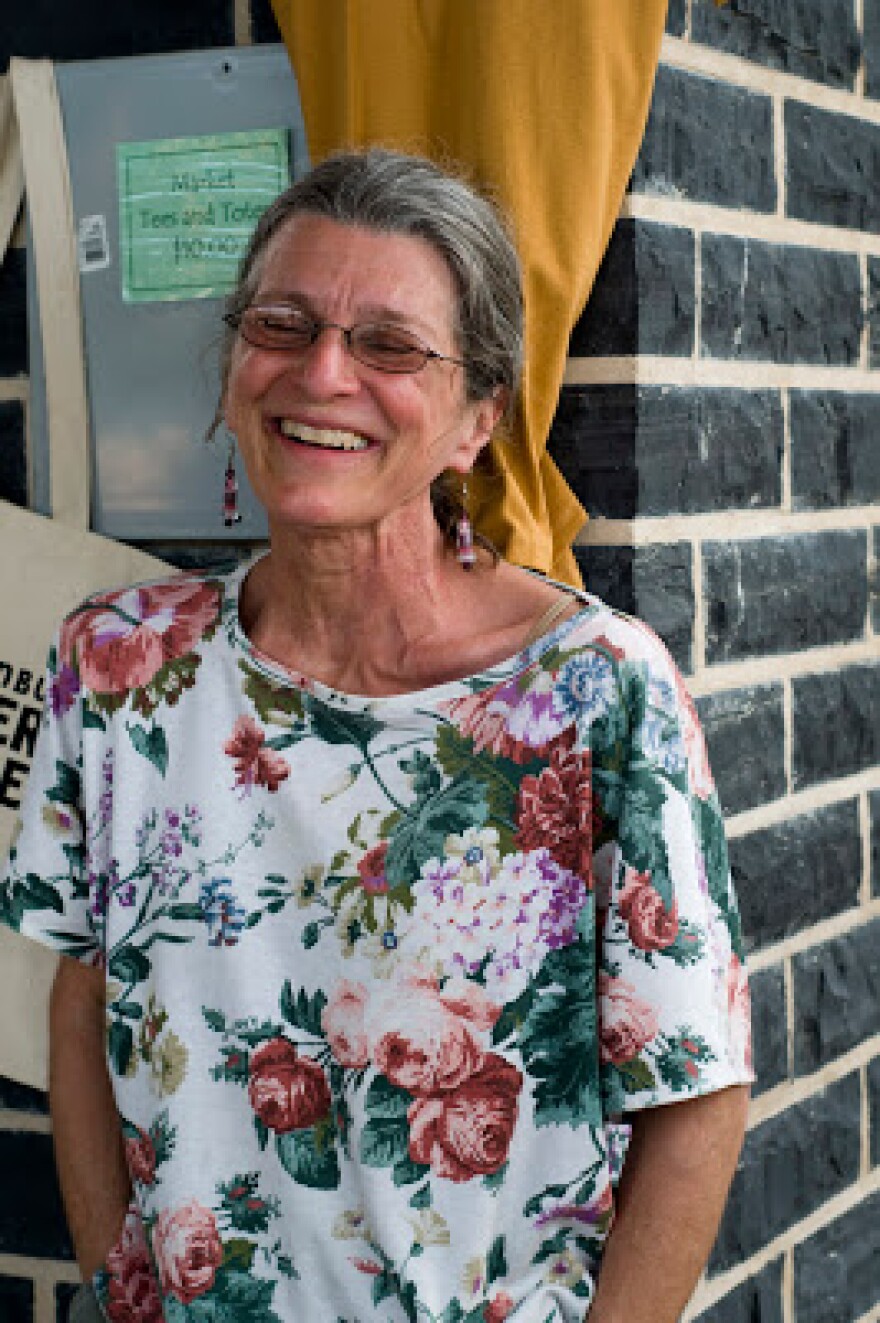The Harrisonburg Farmers Market is moving its operations online to keep going during the COVID-19 pandemic. In part one of this story, WMRA’s Calvin Pynn explores how James Madison University’s X-Labs and a group of graduate students helped get them there.
(Archived audio of the Harrisonburg Farmer’s Market)
The Harrisonburg Farmers Market was still operating as usual in the first week that state officials recommended physical distancing measures to slow the spread of COVID-19. But as other businesses downtown were scaling back or closing entirely, it became clear that the Market had to follow.
Their manager, Josie Showalter.

JOSIE SHOWALTER: It looked scary, it looked uncertain. We had our regular farmers’ market one week, and then the next week it was 10 customers only.
On an ordinary Saturday, the Market is bustling with music, food, and dozens of vendors and customers intermingling in Turner Pavilion. But they had to scale down to adhere to Governor Ralph Northam’s cap on gatherings of more than 10 people, as only that many were allowed in at a time with a line at the pavilion’s entrance.
(Audio of farmers’ market fades to silence)
Although limiting the number of customers in the Pavilion seemed to work out, Showalter found out the following Tuesday they had to make drastic changes.
SHOWALTER: Markets had been put into the category of drive-through restaurants, so we were no longer allowed to be open at all, except for drive through. And then I was just like: “uuuuggggh, now what do we do?”
But a solution presented itself after Showalter shared her concerns about the market during a routine dog walk with her neighbor Sean McCarthy, an associate professor in JMU’s School of Writing, Rhetoric, and Technical Communication, or WRTC. Just as the pandemic had upended the Farmers Market, it had also disrupted the syllabus for McCarthy’s Digital Cultures graduate course.
The mutual conflict created a mutual opportunity to move the Farmers Market to an online-only, drive through format, with the help of three students in McCarthy’s class as their project for the rest of the semester.

SEAN MCCARTHY: It’s become a really vibrant and creative problem-solving network. We’re encountering new things to puzzle over every day, but hopefully it’s a really interesting way that the community can come together and do something good in a time of deep distress really, and in a time when we can’t work with each other in normal ways.
The Market closed down for two weeks while grad students Laura Siegel, Dylan Crigger, and Lacie Knight worked with the Market’s 50-plus vendors to get their wares online and promote the new operation on social media. They did that using the e-commerce platform Food4All, which was a first-time endeavor for many of the vendors, according to Knight.
LACIE KNIGHT: You’ve gotta take it call by call. I think they’re going to be really excited once they actually see their products being given out on opening day. Farmer’s Markets – the point of it is to walk around...

While McCarthy’s class worked with the individual vendors, The Farmers Market teamed with JMU X-Labs to tackle the logistics of quickly changing the Market’s format. That included packaging orders to deliver to customers while still practicing physical distancing.
JMU X-Labs’ manager, Aaron Kishbaugh.
AARON KISHBAUGH: We’re really looking at ways of doing creative problem solving and thinking most quickly and effectively how to deliver this really valuable and much needed service.
Another priority was making the new format accessible for customers paying for goods with benefits from the Supplemental Nutrition Assistance Program, better know as SNAP. Although the option did not come up at first, Showalter said a representative from Food4All was able to include that payment option, along with a list of the Market’s vendors who are SNAP eligible.

SHOWALTER: She basically took it from square zero to two and within a week and a half, we had a SNAP cab up.
Many of the Market’s vendors were sold out of most of their stock the night before they were set to relaunch with the new drive-through format. But the real test was going to be when cars would start lining up the next morning on Saturday, April 11. Tomorrow, we’ll find out how that went.


